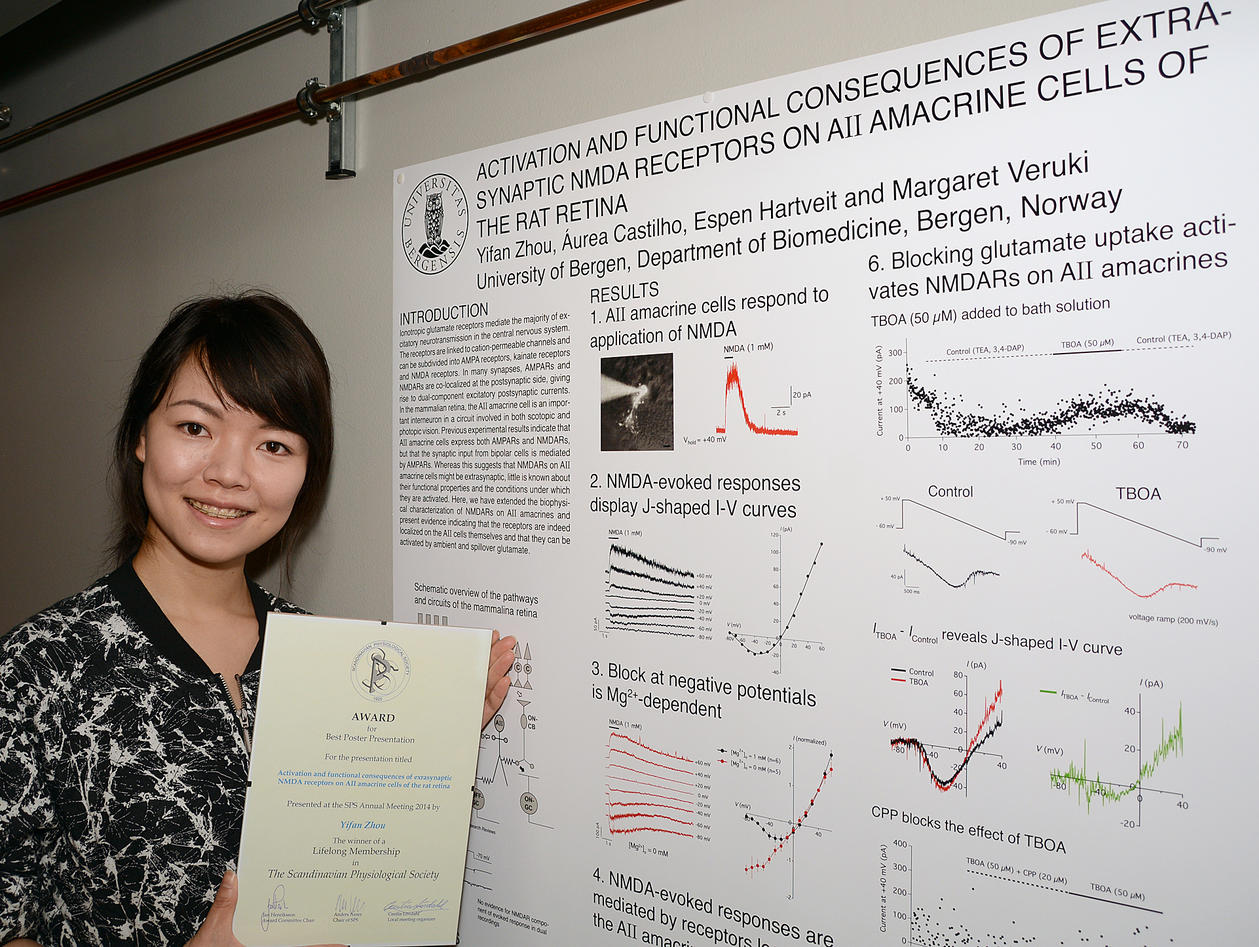Best Poster Prize
Yifan Zhou has won the prize for “Best Poster” at the 2014 Scandinavian Physiological Society Annual Meeting

Hovedinnhold
Microcircuits in the neural retina
Yifan Zhou is a PhD candidate in the Neural Networks Research Group at the Department of Biomedicine with Professor Meg Veruki as her main supervisor and Professor Espen Hartveit as her co-supervisor. The research of the group is motivated by fundamental questions about how the central nervous system works and is focused on the operational characteristics of small networks of neurons (called microcircuits) in the neural retina. Microcircuits from different brain regions utilize similar inventories of neurotransmitters, receptors and transporters to achieve their signal-processing goals, but result in different functional outcomes, depending on the exact spatial arrangement of synapses and their molecular constituents. The retina is an ideal model in which to study the basic properties of synaptic transmission within defined microcircuits because it is accessible, has a highly organized and layered cellular structure and has well-characterized synaptic connections. The group uses electrophysiological techniques, combined with imaging (multi-photon, wide-field and calcium imaging) to study these retinal microcircuits.
Yifan investigates glutamate receptors on AII amacrine cells
Yifan’s thesis work is to investigate the role of NMDA receptors (a type of glutamate receptor), following spillover of glutamate within a microcircuit that is part of the rod pathway – the neurons that process visual signals in the dark. Diseases in this pathway can cause night blindness. Yifan uses patch-clamp electrophysiology in a rat retinal slice preparation to study inhibitory interneurons in this microcircuit to characterize the specific subtypes of NMDA receptors that are present. At the 2014 annual meeting of the Scandinavian Physiological Society, Yifan presented data that characterize the biophysical properties of NMDA receptors on one type of inhibitory interneuron, the AII amacrine cell. The AII amacrine acts as an important switch point in this retinal microcircuit and conveys rod signals to the cone pathway. Yifan continues to investigate the biophysical and pharmacological properties of these receptors and hopes to determine their specific role in processing visual signals in this pathway. It is a premise of the research that a clear understanding of the fundamental mechanisms of a healthy nervous system can lead to the insights required for rational therapeutic interventions in the diseased nervous system.
The Scandinavian Physiological Society
The Scandinavian Physiological Society is an organization for researchers in physiology and related sciences in the Nordic countries: Denmark, Norway, Finland, Iceland and Sweden. The 2014 meeting was held in Stockholm. Yifan presented her poster “Activation and functional consequences of extrasynaptic NMDA receptors on AII amacrine cells of the rat retina”.
Based on three criteria (content, design and presentation), she won the prize for best poster! The prize is a lifelong membership in the Scandinavian Physiological Society.
Congratulations to Yifan and her supervisors for a job well done.
